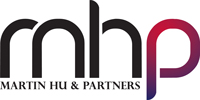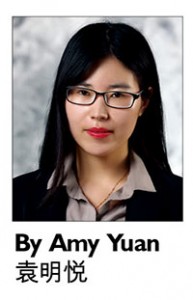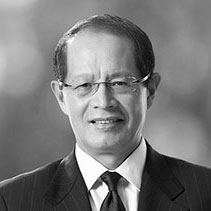
8F, Kerry Parkside Office,1155 Fang Dian Road, Shanghai 201204, P. R. China
Tel: (86) 21 50101666*912 / Fax: (86) 21 50101222
E: amy.yuan@mhplawyer.com • info@mhplawyer.com
W: www.mhplawyer.com
 On August 1, 2016, which happened to be the eighth anniversary of the Anti-monopoly Law, Didi announced its merger with Uber China. The Ministry of Commerce (Mofcom) has not yet launched any investigation into operator concentration, but the merger has sparked heated debate.
On August 1, 2016, which happened to be the eighth anniversary of the Anti-monopoly Law, Didi announced its merger with Uber China. The Ministry of Commerce (Mofcom) has not yet launched any investigation into operator concentration, but the merger has sparked heated debate.
Debate over self-declaration
As provided in Article 3 of the Provision of the State Council on the Declaration Threshold for Concentration of Undertakings, if during the previous fiscal year, the total global turnover of all business operators participating in the concentration exceeded RMB10 billion (or RMB40 million in mainland China), and at least two of the operators each had a turnover exceeding RMB400 million within mainland China, a declaration must be lodged in advance before the concentration is implemented. However, relevant provisions fail to further specify “turnover”.
As to the merger of Didi and Uber China, one argument holds that it should be gross turnover, including all fees customers paid on Didi and Uber’s platforms. A different opinion holds that turnover should be net income, excluding fees paid on such platforms as pass-through in light of Didi and Uber’s special business models.
Nevertheless, while the requirements for self-declaration may be unclear, Mofcom can still initiate a monopoly investigation based on Article 4 of the Provision if it judges that the merger would eliminate or restrict competition. However, Article 4 has remained a dormant clause since its effectiveness.
The question of monopoly
Although it is unclear whether an investigation will be launched in this case, heated debate has arisen on whether the merger will in essence constitute a monopoly. To reach the conclusion, it is necessary to first determine the relevant market.
Traditional viewpoint
The traditional viewpoint is based on the Guidelines on Relevant Market Determination promulgated by the Anti-monopoly Commission of the State Council, which relies on demand-side substitution, hypothetical monopolist test, etc to determine relevant market.
Demand-side substitution
The Guidelines pointed out that price factor can be considered in the demand-side substitution test. In light of the merger of Didi and Uber China, the choice of transportation vehicles is often driven by different consumption demand with different price sensitivity. For traditional public transportation vehicles, prices are subject to regulatory control and thus are below the price of car-hailing services, which are subject to the market price and provide differentiated services. Consequently, car-hailing constitutes an independent market from the market of public transportation vehicles.
Hypothetical monopoly test
The hypothetical monopolist test starts with the assumption that the business operator is a monopolist (the “hypothetical monopolist”). Provided that the sales conditions of all other products remain unchanged, if the hypothetical monopolist can continuously increase the price of the target product by a small rate while the business is still lucrative, the target product will be deemed as constituting a relevant market. Apparently, Didi and Uber China currently increase the price continuously at a small rate. If its business is still lucrative, such service shall be deemed as a relevant market.
To sum up, the traditional viewpoint is inclined to hold car-haling services as a relevant market. However, the modern market viewpoint thinks differently.
Market viewpoint
The modern market viewpoint is borne of the internet age. It holds that large internet companies whose major function is to facilitate deal making should be defined as a market. To take a step further, if the large internet company is defined as a market, it would also be unnecessary and unfeasible to determine the relevant market that is being monopolised.
As to Didi and Uber China, although they are established under company names, they are more like markets for deal making. Rather than being operators in the marketplace, they may constitute a market. Take Taobao for example. There is little debate on whether Taobao is a monopoly. From the market viewpoint, it is because the mass society has already viewed Taobao as a market, rather than an operator. Like Taobao, if Didi and Uber China each constitutes a market, their merger will be a merger of two markets, rather than operator concentration. Thus, investigation of the merger would be unnecessary and it would not constitute a monopoly.
As seen from the above, it is debatable on the merger of Didi and Uber China. In light of the macro environment, the internet platform industry still enjoys a policy bonus, which may be one of the considerations that explains why Mofcom has not yet launched an investigation. Nevertheless, as this industry matures, it will be necessary to promulgate detailed regulation to address the above debate and avoid ambiguity.
反垄断视角下滴滴收购优步中国
2016年8月1日,在《反垄断法》生效的8周年纪念日,滴滴宣布与优步中国合并。但商务部至今尚未对该合并作出经营者集中审查。外界对滴滴与优步中国合并不乏争议,其中,既包括企业是否应主动申报的程序性争议,也包括是否构成垄断的实质性争议。
一、 程序上是否应当主动申报
按照《国务院关於经营者集中申报标准的规定》(”《规定》“)第三条所规定的营业额标准,参与集中的所有经营者上一会计年度在全球范围内的营业额合计超过100亿元人民币(或在中国境内的营业额合计超过20亿人民币),并且其中至少两个经营者上一会计年度在中国境内的营业额均超过4亿元人民币,经营者应当事先向国务院商务主管部门申报,未申报的不得实施集中。但相关规定并未对”营业额”作出更明确的解释。
对於滴滴与优步中国合并,就如何判断”营业额”,存在以”流水额”还是以”净收入”为准的争议。有观点认为”营业额”应作严格解释。对於滴滴及优步中国的营业额,应包含乘客向网约车平台支付的全部费用(即流水额)。但另有观点认为因网约车行业模式的特殊性,滴滴与优步中国仅作为中介平台,司机并非公司员工,对於其营业额考察应衡量公司的净收入而非流水额,即应为乘客向平台支付的全部费用中,最终由滴滴或优步中国净收入的部分。
但即便主动申报尚存争议,商务部依旧可根据《规定》第四条主张滴滴收购优步中国案涉嫌排除、限制竞争,因而依职权调查是否涉嫌垄断,对滴滴与优步中国合并发起实质性审查。遗憾的是,自《反垄断法》生效以来,商务部至今从未适用《规定》第四条,也没有为其使用制定配套规范。
二、 实质上是否构成垄断
尽管滴滴与优步中国合并尚未步入实质审查环节,外界对滴滴与优步中国合并是否构成垄断依旧讨论热烈。而确定是否构成垄断的关键在於相关商品市场界定。以不同的市场边界作为标准,得到的结论往往大相径庭。
传统观点
传统观点依据《国务院反垄断委员会关於相关市场界定的指南》(”《指南》“),提出需求替代、假定垄断测试等方法界定相关商品市场。
(一) 需求替代
《指南》提出在界定相关市场时,可以基於商品的特征、用途、价格等因素进行需求替代分析。就需求替代分析中的价格因素而言,不同出行方式对应的是不同的消费需求,以及对价格敏感度不同的消费群体。出租车、公交和地铁都属於价格管制行业,且在政府补贴下,价格通常低於网约车。而网约车则实施市场调价,提供差异化服务,其显然不应与出租车、公交和地铁划入同一相关商品市场。
(二) 假定垄断测试
假定垄断测试首先假设该经营者是以利润最大化为经营目标的垄断者,在该前提假设下进一步分析,在其他商品的销售条件保持不变的情况下,垄断者能否持久地(一般为1年)小幅(一般为5% 10%)提高目标商品的价格。若目标商品涨价后,垄断者仍有利可图,则目标商品就构成相关商品市场。对於滴滴与优步中国的网约车服务,显然在其合并后存在小幅且非短期的涨价,若其仍有利可图,则其提供网约车服务应构成相关商品市场。
由此可见,传统观点倾向於判断网约车服务构成相关商品市场。但市场观点却对此抱有截然不同的看法。
市场观点
市场观点为互联网时代的产物。其认为对於大型互联网公司,本身便具有拥有撮合交易的市场实质,在其体量足够大时,应将其本身定性为市场,而非经营者才更为准确。进一步而言,若将大型互联网公司本身定性为市场,则判断相关市场显然没有必要,也是不可实现的。在大型互联网公司本身为市场而非经营者的情况下,因其本身并非经营者,判断其构成经营者集中,从而存在垄断之嫌也是无本之木。
对於滴滴与优步中国,尽管其同样以公司的名义设立,具有法人实体,但其与传统意义上的公司显然已有分别,更多的是扮演着撮合交易这一市场作用。与其将其定性为传统意义上的经营者,不如说其自身已构成市场。另一个典型案例为淘宝。很显然,社会公众对淘宝是否构成垄断关注度很低,市场观点认为究其原因在於社会大众都已将淘宝看做市场,而并未将其作为经营者看待。若滴滴与优步中国各自被认定为市场而非经营者,则其合并后本质为两个市场的合并,而非经营者集中。显然对於该等合并不应发起经营者集中事先申报,在实质上也不应认定构成垄断。
由此可见,认定滴滴与优步中国合并是否构成反垄断尚存诸多争议。从政策上看,对於互联网平台这一新兴事物,国家对其发展是宽容的,商务部也暂未对滴滴与优步中国合并作出明确表态。但随着互联网平台日趋成熟,我们期待有关部门可以尽快出台相关措施,明确互联网并购反垄断相关问题,以节约因不确定性导致的企业交易成本,提升市场效率。

















